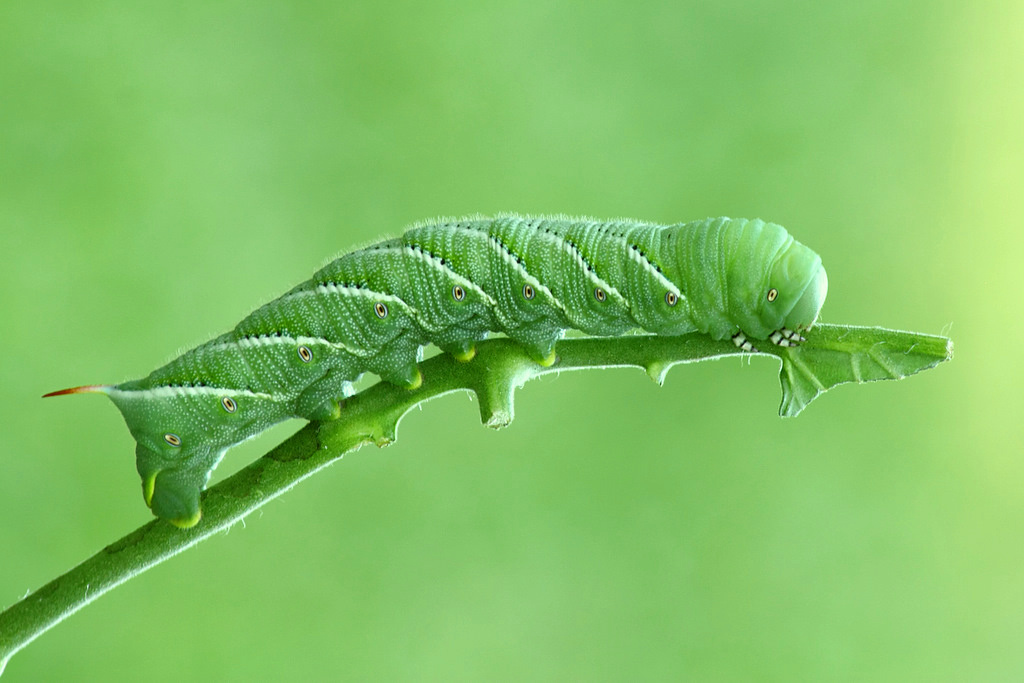Manduca sexta, the tobacco hornworm, lives in a cloud of nicotine. Unlike most small insects, the caterpillars can eat the leaves of tobacco plants, taking in quantities of nicotine that would poison most creatures its size. But instead, the hornworm just gets bad breath — its body extracts the nicotine from the plant and exhales some of it, creating “quadruple the concentration of nicotine in the air around them, creating an effective anti-spider spray,” National Geographic’s Ed Yong reports.
It doesn’t bother the caterpillars. It does bother predators like wolf spiders, which, once they notice the caterpillar’s nicotine breath, steer clear. Just think of how non-smokers react to a cloud of tobacco smoke, and you know exactly how the spider feels.
On the flip side, if you’re worried about wolf spiders when you’re out drinking at a bar, take a page from the caterpillar — get one of those new-fangled e-cigarettes and try exhaling a boatload of nicotine vapor at any spiders that get too close. (If the caterpillar’s experience is any guide, though, you’ll still have to worry about antlions.)



